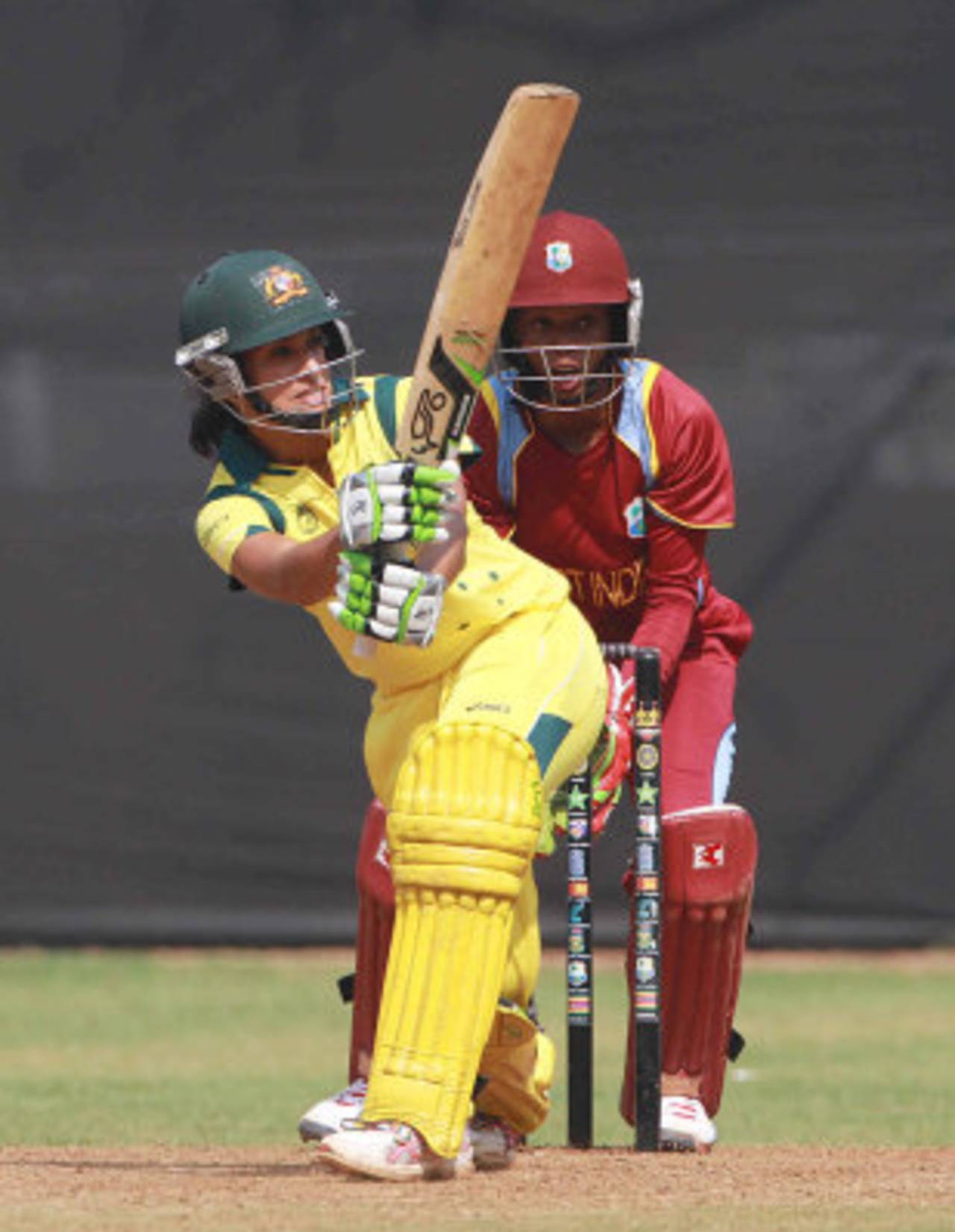Sthalekar's journey
While England-Australia clashes always get the pulse racing, allrounder Lisa Sthalekar has told me she would like the ICC and national governing bodies in cricket to arrange more series between the higher and lower ranked women’s countries, in
Alison Mitchell
Feb 25, 2013, 11:39 PM

Lisa Sthalekar always feels a strong bond when she returns to India • ICC/Solaris Images
While England-Australia clashes always get the pulse racing, allrounder Lisa Sthalekar has told me she would like the ICC and national governing bodies in cricket to arrange more series between the higher and lower ranked women’s countries, in order to speed up the development of the game.
This comes particularly in light of the rapid improvement Sri Lanka have made in the last couple of years and Sthalekar notes that Australia have only ever played two ODIs against Sri Lanka in their history – the last being at the World Cup of 2005 – and only three against the West Indies.
“We should be playing teams like Sri Lanka, South Africa and the West Indies more often, instead of just the top four nations. Hopefully with the development of this World Cup, the ICC and the other national bodies are able to put more series and competitions in place.”
She also commented that she hoped India’s early exit from the World Cup might be a “wake up call” to the BCCI, who have been criticised during the this tournament for not supporting the women’s game more.
Travelling to India has always had a special resonance for the 33-year-old Sthalekar, who picked up the Player of the Match Award in her country's tense two-run win over England in the Super Sixes. She was born in Pune and adopted as a baby, before being taken to live in Australia.
Her English mother Sue and Indian father Haren were living in the USA at the time and they already had young daughter. They arrived at the orphan’s hospital in Pune looking for a son to complete their family, but instead they were directed to a family home where a small baby girl had gone to be looked after temporarily, and they felt an instant bond.
Australia was where the family settled but Sthalekar still feels a connection with India and in particular the World Cup’s host city, where her father is from.
“It’s nice to be back,” she said, after a training session at the Brabourne Stadium. “I’ve got really fond memories of Mumbai. My father’s family is here and I used to come back when I was younger for school holidays and stuff, so I get a real sense of coming home sometimes, which is really nice.”
With her mother being English, was there ever any question over which cricket team to support though as she was growing up? Sthalekar grins and shakes her head emphatically.
“She was an Aussie through and through. She always followed me around and watched the games and was a good supporter. Without both of them I would never have got to where I am now.”
Sthalekar’s mother passed away in 2002 after a six year fight against breast cancer. She wrote in her autobiography, published only last year, that her mum was the biggest influence on her life.
Sthalekar attended Sydney University where she completed a double major in Psychology and Religious studies, with the aim of becoming a practising psychologist. Soon after graduation though, her cricket really began to take off and life took a slightly different direction.
She is now a World Cup winner (2005) and two times a World T20 winner (2010 and 2012) and combines playing cricket with a job at Cricket New South Wales as their Youth Programmes Manager, overseeing all the junior elite female programmes across the State.
“They’re understanding of the amount of time I need to take off,” she says. “But even working at Cricket New South Wales, I’m having to take a lot of time off. They’ve employed me as a full time worker, but I’m not quite there full time. So there’s a bit of a juggling act going on at the moment, particularly in Australian cricket.”
The Australian players have what Sthalekar terms “small contracts” from the board, but all squad members still need to earn a living outside of the playing arena.
“How much cricket can we play plus still keep full time jobs? I’d like to think in the next few years we can see a shift when the girls are more semi-professional and can put more time into their cricket.”

View from the market: a stall-owner proud of his work•Alison Mitchell/ESPNcricinfo
* * *
I spent a very enjoyable morning at Chor Bazaar ('Thieves Market') the other day, wandering up and down the bustling, narrow lanes and browsing the market stalls in what I'm told is the largest flea market in India. The first stall my fellow commentator Mel Jones and I were drawn to was a sports shop, selling an array of cricket bats all boasting "English willow" on their labels. We almost got ourselves a good bargain in order to go and have a hit on the maidan, but decided we didn't want to carry it around the rest of the day.
Instead we marvelled at the old Bollywood film posters, the incredible array of DIY and hardware goods - everything from ancient telephones and cameras, to fans, kitchen blenders, enormous drills and every size screw or nail imaginable. My favourite stalls though were the food stalls, as I came face to face with the dismembered head of a goat, and marvelled at the skill of a fish monger, who speedily and expertly sliced and bagged up a family's supper, then delighted in posing with his produce for my camera.